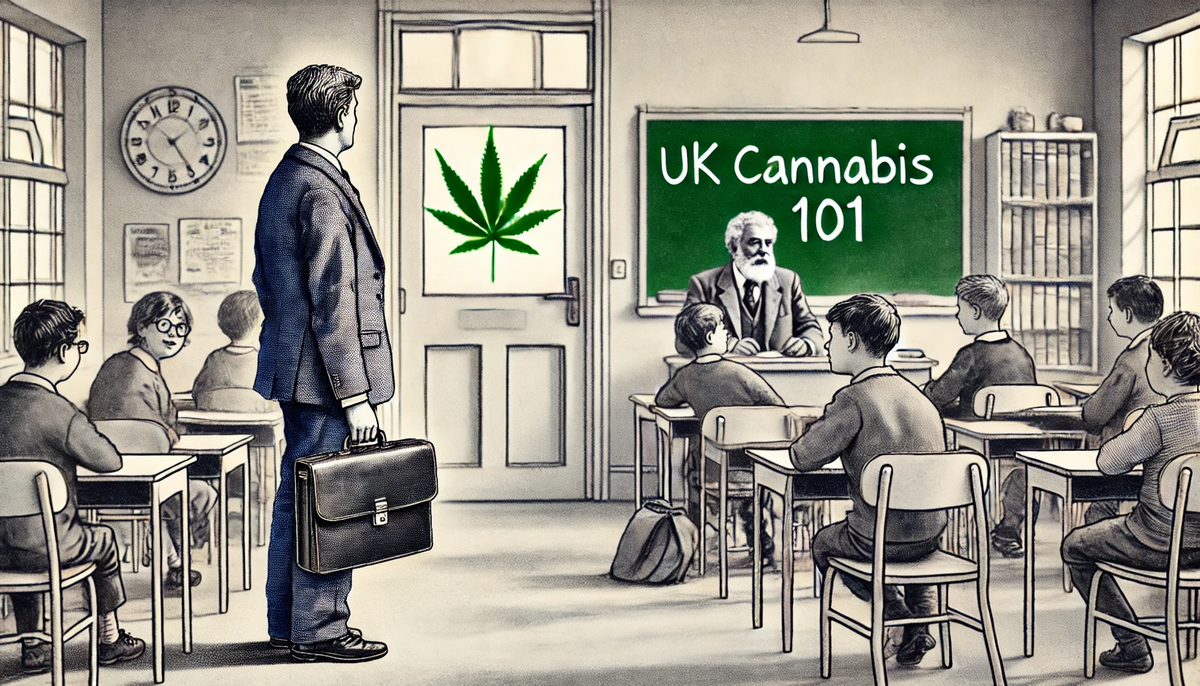
The UK cannabis and CBD industry is facing an undeniable truth, and it’s astounding how many 'canna business' individuals continue to bury their heads in the sand. The number of companies skirting dangerously close to regulatory enforcement is staggering, all while the signs are blindingly clear. It’s what we might call "The Ostrich Stage" — a state where professionals either deny the risks or mistakenly believe they can outmaneuver regulatory consequences by ignoring them.
One of the most prevalent and concerning issues is the use of medicinal claims in marketing. We are all familiar with the potential benefits of cannabinoids, but under UK law, promoting these benefits for a food product is strictly prohibited. Despite this, medicinal claims remain widespread in the sector, as many companies fall back on them to differentiate themselves in a competitive market. However, this is not only risky but legally unsound. Even if a product is genuinely medicinal, licenses must be obtained from the MHRA to legally market or prescribe it. In the UK, the Medicines and Healthcare products Regulatory Agency (MHRA) regulates such products under Part 9, Regulation 165, of the Human Medicines Regulations 2012 (SI 2012/1916). Failure to comply can result in serious repercussions.

Working Together to Clean Up the Industry
Numerous bodies, including trade associations and regulatory agencies, are working to clean up the industry, but this cannot be done unilaterally. When support and guidance are offered to ensure compliance, businesses should embrace this help with both hands. Often, a nudge from industry groups or even a soft warning from a regulatory body may be the only chance a business has before facing harsher consequences.

CBD “Experts” Making Rookie Mistakes
What’s even more worrying is seeing those who claim to be 'CBD Experts' — those whose names carry a certain level of credibility and respect in the community — making elementary compliance mistakes. Whether due to denial, complacency, or a simple lack of regulatory knowledge, these errors place both their businesses and the industry at risk. They need to step out of "The Ostrich Stage" and face reality. Mistakes may be forgivable when they’re made out of genuine ignorance, but repeatedly burying one's head in the sand is not.

Ignorance Is No Defence
One of the most common defences we hear from non-compliant businesses is, "I didn’t know." Unfortunately, this will not hold up under scrutiny. The legal requirements are clear, and the MHRA issues notices when products do not adhere to these guidelines. Since October 2019, the MHRA has issued multiple Regulation 165 notices specifically to address medicinal claims made by CBD products. For any product marketed as medicinal, ignorance of the regulations is no longer an acceptable excuse.
When these notices are issued, the MHRA expects prompt action to ensure compliance. However, there is no standard compliance period; the timeframe depends on the specific nature and severity of the violation. For cases involving public health risks, the MHRA may require immediate action, underscoring the importance of swift responses from businesses. Failure to comply can lead to escalating enforcement measures, including product seizures, fines, or even legal proceedings. Ignoring a notice not only places a business at risk but also compromises industry standards and public trust.

The UK cannabis and CBD industry stands at a crossroads. Businesses that understand and respect the regulatory landscape have a strong future. Those who choose to ignore it are sailing close to the winds of enforcement.
The path forward is clear: address non-compliance, collaborate with regulatory bodies, and move toward a transparent and accountable industry.
Published - 26th November 2024





